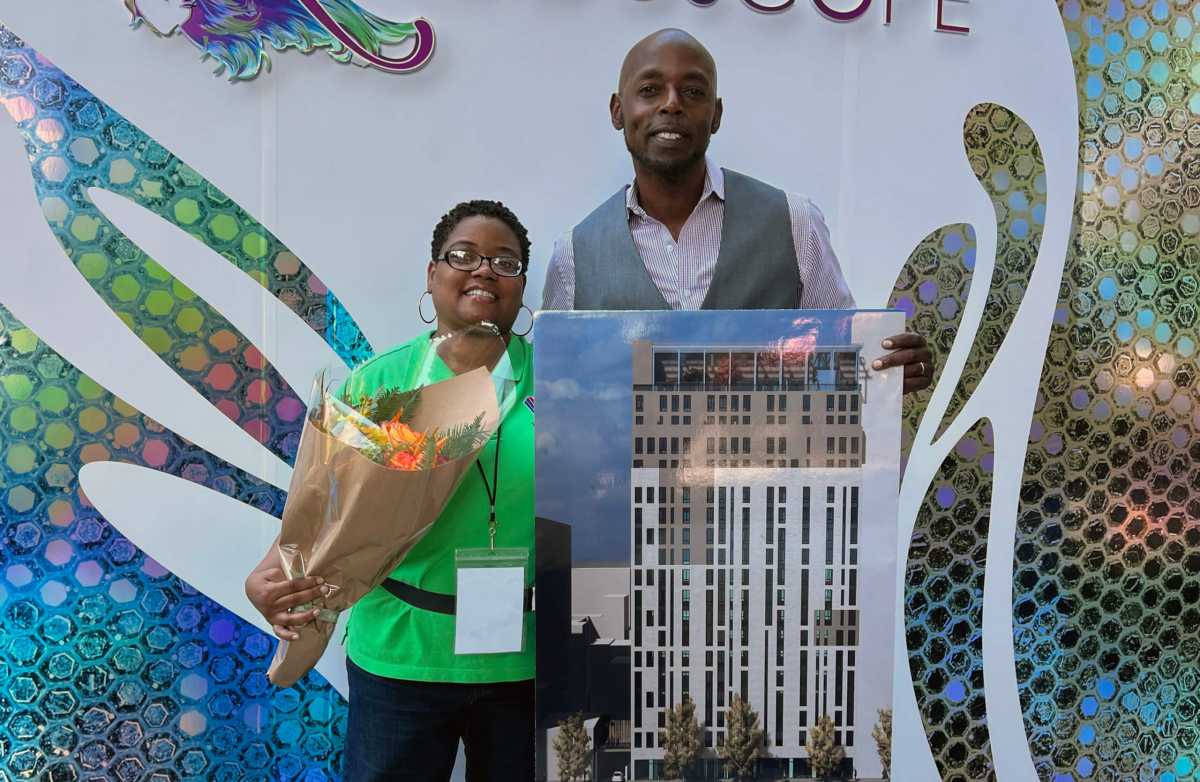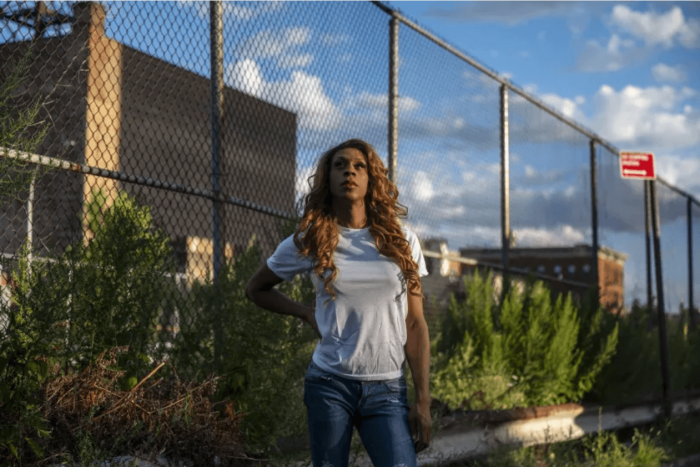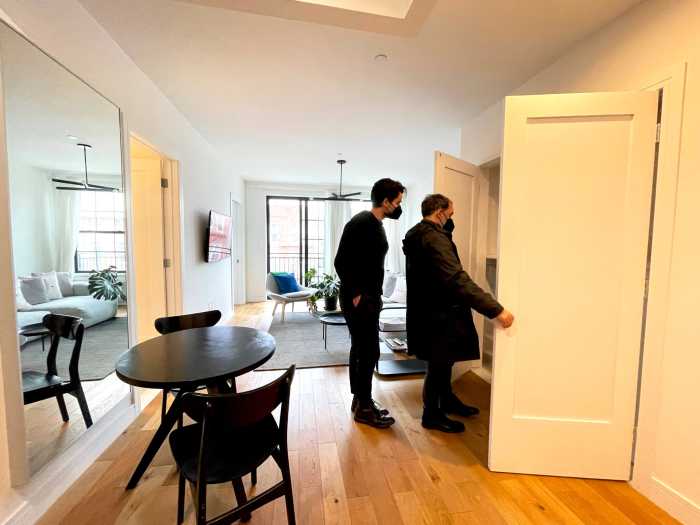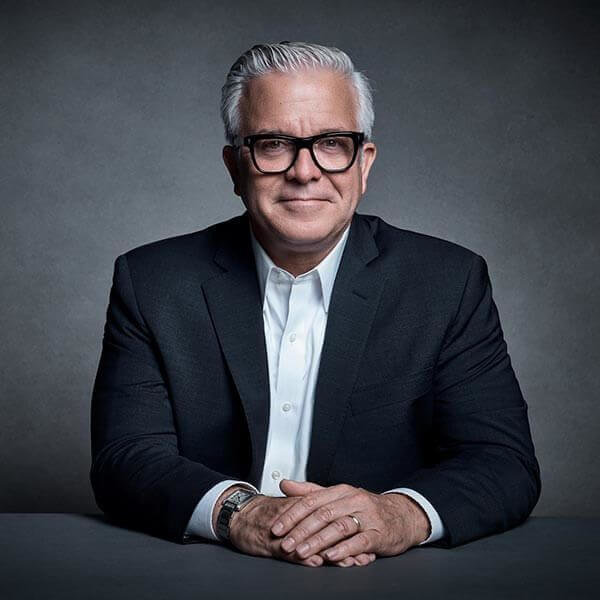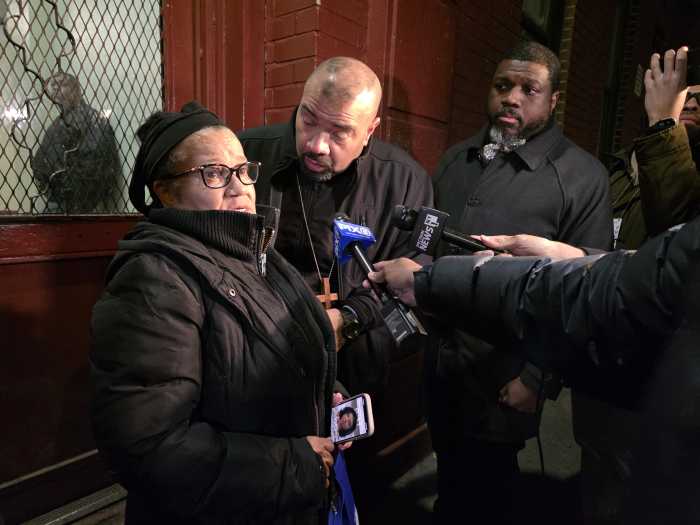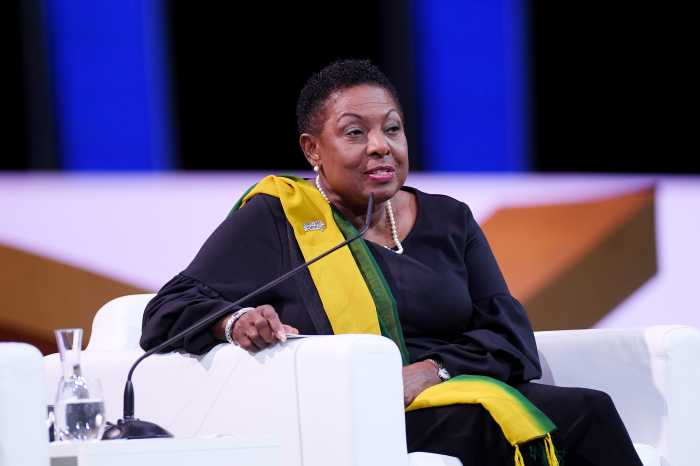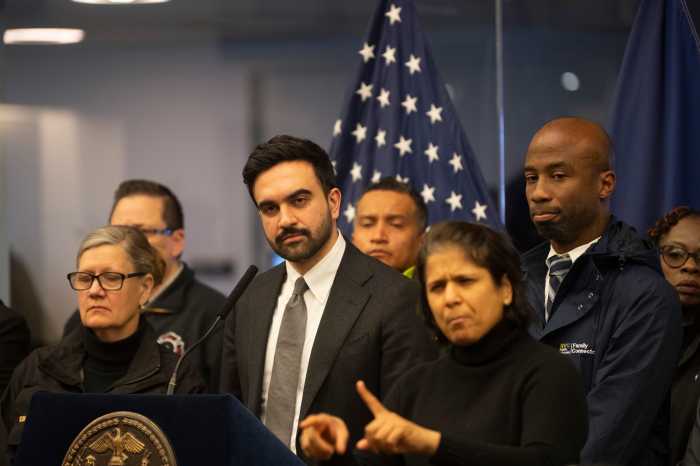Harlem’s Marcus Garvey Village, a forthcoming 18-story, 330-unit affordable housing development with an LGBTQ center, was originally slated to open in 2022. The pandemic, inflation, high costs of materials, and labor and supply shortages temporarily stalled the development, pushing the anticipated opening date to 2024, according to Harlem native and developer Ed Poteat, president of Carthage Real Estate Advisors.
The mixed-income, mixed-use complex, named after the late Marcus Garvey, broke ground in November 2021 at 212-224 West 124th Street and Adam Clayton Boulevard. It will be 50% affordable housing and 50% market-rate housing. Aside from its residences, the 300,000-square-foot building will feature 3,200 square feet of commercial space and 7,164 square feet of community facility space.
Applications will be accepted sometime at the end of 2023, Poteat said.
“I’m so excited about Marcus Garvey Village because I think we have the right strategies,” Poteat said.
Marcus Garvey Village is an example of responsible gentrification, said Poteat, who doesn’t necessarily see gentrification a bad thing for communities. If it is done right, Poteat believes “it could be good for the community.” Poteat, who has worked on affordable housing developments in Harlem for 20 years, said it matters “who controls that change,” ensuring that change is “working for the residents of the community,” and “having strategies” to make sure that the change works.
Gay City News previously reported Carthage is spearheading the project after purchasing the former Abyssinian Baptist Church site for $27 million. Carthage secured $2 million from the West Harlem Development Corporation and an $80 million construction loan.
New York YIMBY reported Carthage works with private investment clients, not-for-profits, and municipalities throughout New York, New Jersey, and Connecticut. Carthage is well known for developing more than 1,500 units of affordable housing with a total budget of nearly $350 million since 1999.
For the design, Carthage is working with Body Lawson Associates Architects and Planners, who are recognized as advocates for sustainable building, adaptive re-use, renovation, and rehabilitation projects, reported New York YIMBY.
The new projected opening date wouldn’t have been possible without New York City Mayor Eric Adams stepping in to help move the project forward, according to Poteat.
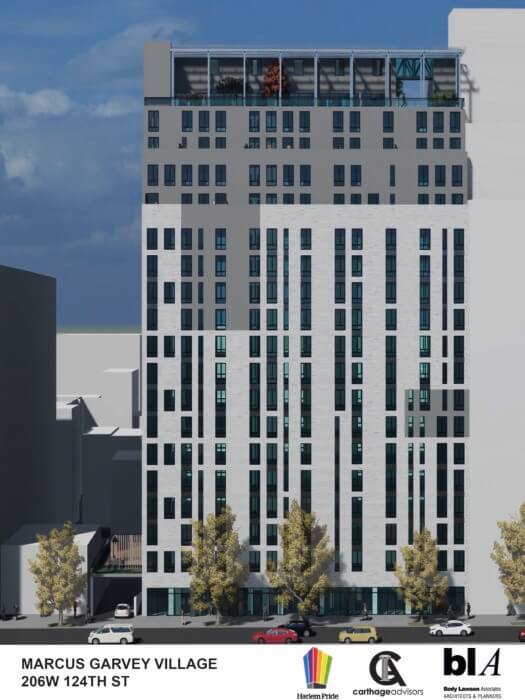
Earlier this summer, LGBTQ residents of Harlem got their first peek at the new Harlem SGL LGBTQ Center, which will reside at the future Marcus Garvey Village.
Adams, elected officials, and Poteat unveiled renderings of the future 20,000-square-foot center on the complex’s ground level at the 13th Annual Harlem Pride on June 27.
Harlem “has become one of the homes for the Black and brown gay community in New York City,” Poteat, an ally, said. “I’m proud of that. We’re gonna be providing housing for that community.
“I think Marcus Garvey Village has done a very good job of taking into consideration of every part of the community,” Poteat said. “We’re viewing this really as an anchor for the community.
The building will feature affordable and market-rate residences for individuals and families, a center that will act as a one-stop shop for LGBTQ services, and a rooftop entertainment center overlooking Manhattan.
The center will include offices, a drop-in medical clinic, a food pantry, programs, including transgender- and senior-specific initiatives; program rooms, a library with rare LGBTQ history archives, and a café and lounge, according to Carthage’s media representative, David Lozada.
“The Marcus Garvey Village project will honor Harlem’s history as a haven for the LGBTQ+ community and deliver much-needed affordable housing in the neighborhood,” a spokesperson for Mayor Adams wrote in a statement to Gay City News. “While significant work remains, Mayor Adams is committed to seeing the project completed.”
The spokesperson added Adams “discussed the project with advocates at his LGBTQ+ Community Roundtable in March, and the administration is working hard to help get it done for the community and the city.”
The Black and Latino LGBTQ Coalition, a collective of local LGBTQ organizations, is planning the program’s rollout, Gay City News previously reported.
“We have been offered a wonderful opportunity to create a one-stop hub and resource center for the largest LGBTQ population in the city,” Carmen Neely, co-chair of the Black and Latino LGBTQ Coalition and co-founder and president of Harlem Pride, told Gay City News last year. “Our goal is to provide a safe, culturally competent environment in which to offer programs and services that foster a sense of community for same-gender-loving, lesbian, gay, bisexual, transgender, and queer residents of the city, along with their family, friends, and allies.”
“We just had a good energy, good, good vibe,” Poteat said about the LGBTQ leaders.
The coalition and Harlem SGL LGBTQ Center did not respond to multiple requests for comment from Gay City News.
Poteat spoke with pride about the rooftop entertainment center.
“We have this rooftop cultural space that is really going to be phenomenal,” he said, calling it “a preeminent rooftop space” that overlooks Central Park; the Hudson, Harlem, and East rivers, and Midtown Manhattan.
Poteat envisions the space will create an opportunity for emerging and established artists to perform for Harlem’s community and visitors.
Poteat reiterated that Marcus Garvey Village is going to be a home to Harlem’s Black and brown community, in general, and specifically it is going to be “a home for the Black gay community here in Harlem,” he said.
Affordable housing units will be available to residents through the New York City housing lottery.

